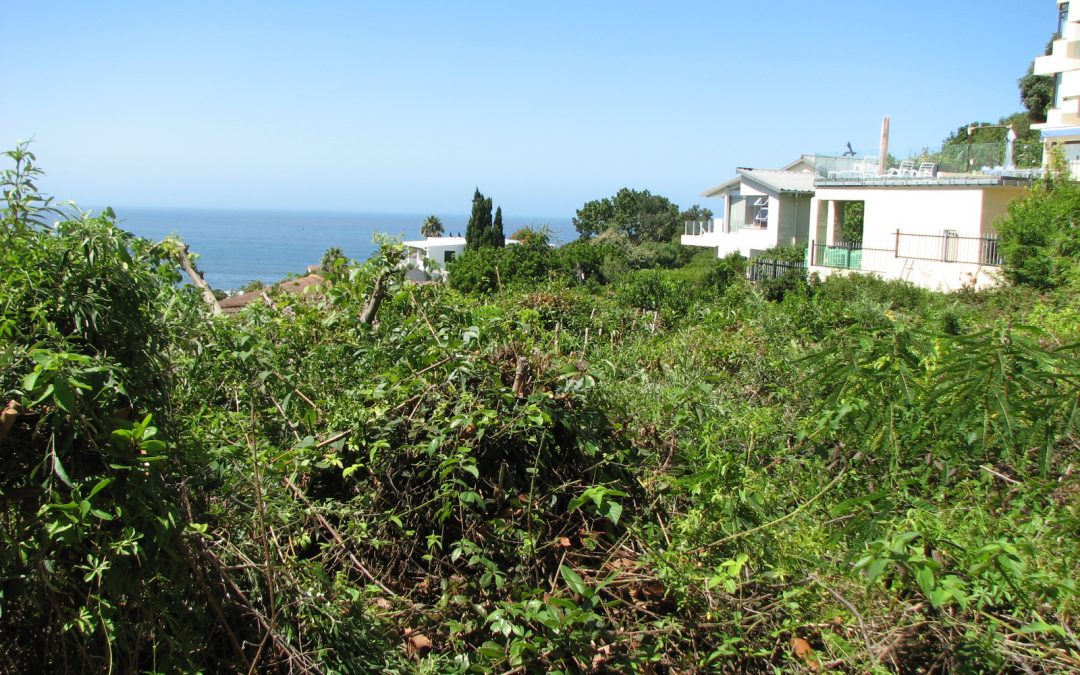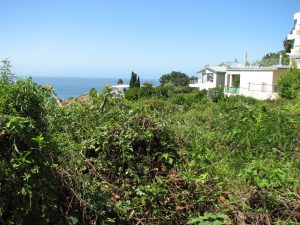The “topping” (cutting off the top) of beautiful naturally-occurring trees like Cape ash, cheesewood and milkwood for the sake of a panoramic view of the sea is a phenomenon in Plettenberg Bay and probably in every coastal urban area.
Charles feels that this tragedy occurs mostly due to modern urban architecture which has allowed humans to defy the effects of the weather and thereby assume visual dominance of his or her domain. The desire to surround properties with boundary walls (and oh, there’s a damn tree in the way again) is the result of ignorance and arrogance, sometimes even aided by local authorities.
“Ideally, normal practice should be to consider advice from experts on function, aesthetics, status and value of vegetation and trees,” says Charles. “Management in this regard serves the community and its urban areas invaluably. It seems that generally communities lack collective vision resulting in minimal regard being given to the importance of our biological environment within residential areas. It is a shame to abandon well established natural bush and trees for a view that is already 50% panoramic. However, it is also inadvisable to plant large trees in confined urban areas where they can create havoc by invading the living space of others.”
It is the natural run-off areas supporting old trees and established habitat that need protection from human interference,” says Charles. Home owners and estate agents have been known to employ “tree-toppers” to illegally enter protected areas to “maintain the view”.
There are some trees that have been topped many times by people who think the trees can simply grow back again. Eventually they cannot because they run out of energy, and as a result their shady canopy is lost, with all the birds and other creatures that depend on them. Invasive plants then thrive on the additional sunlight and take over if left unmanaged.
This would not happen as easily as it does if the people involved employed suitably trained experts who are able to deal with large trees, rendering them less imposing and allowing them to remain in place while also offering an attractive ‘framed’ view which is preferable to the ‘open sea view” – an obsession found all along the coast, turning potentially leafy towns and villages into monstrosities by the sea. There have even been cases where neighbours have poisoned or ring-barked trees next door. The alternative is simple cooperation between neighbours and the services of qualified tree-surgeons or arborists.
“Now it’s too late, in many cases,” laments Charles. “A lovely and sophisticated town like Plett can almost be spoiled because a sea view is more important than beautiful trees close to our homes.”



Recent Comments